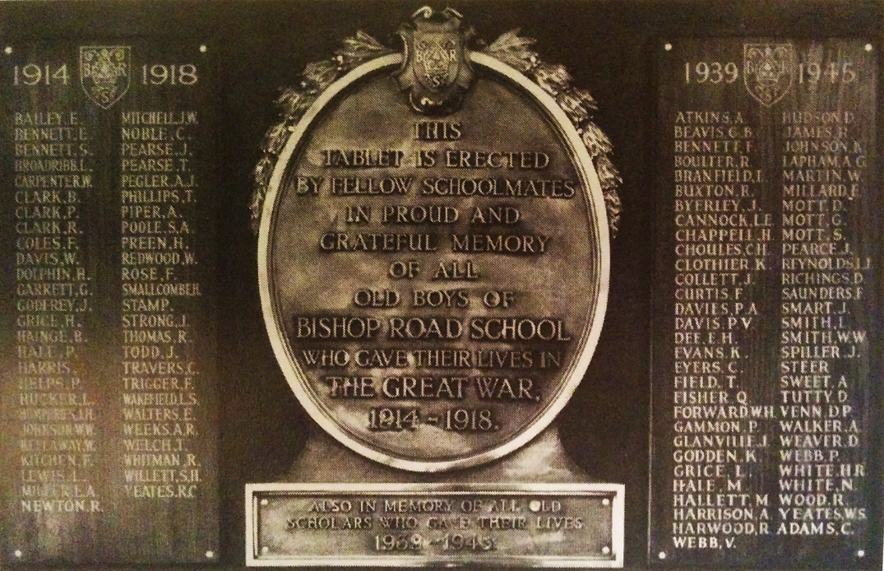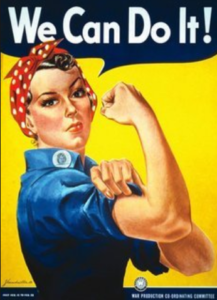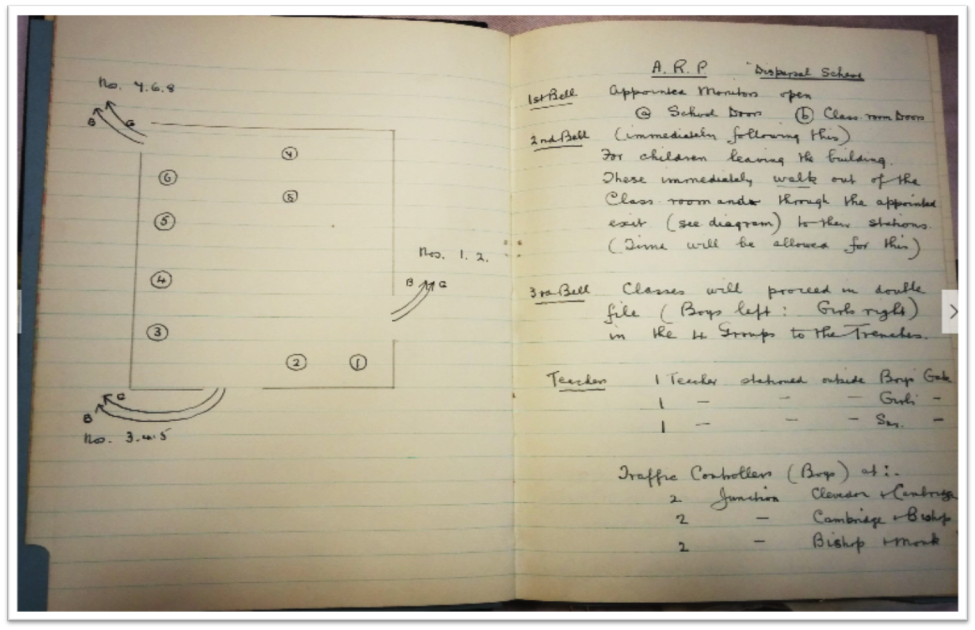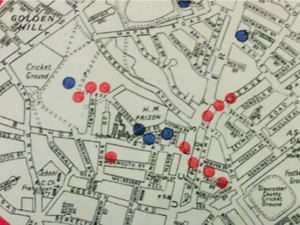
Mr Phillpott, the Headmaster of the newly organised Senior School, recorded the outbreak of World War Two in an understated entry in the school log book kept in the Bristol Records Office:
“1st September 1939: Following orders received through Mr Gilbert, Registers were now marked this afternoon and children were dismissed owing to serious news about relations between Poland and Germany.”
Bristol was a major port city during WW2 which made the city centre a target for German Luftwaffe bombers. There were also factories in the north of the city around Filton that were being used to build aircraft and aero-engines. Despite the heavy bombing in 1940, our school continued on as best it could.

The first change recorded in the school log book was in November 1939 when, on Local Authority instructions, the school times were changed to allow a one 3/4 break in the middle of the day. Changes continued to the school day throughout the war, especially due to staff and resource shortages. Lots of teachers were recorded in the Log Book as being called up to carry out a range of military duties, such as Mr Watkins, Miss R Lewis, Mr Haywood, Mr Hammcott, Mr Lander and Mr Trevelyan.

From March 1940, Bishop Road started to take steps to protect the children and teachers from the threat of daylight raids during school hours. Mr Philpott recorded every drill and day time raid that the school experienced between March and November 1940 in the School Log Book.
 In December 1939, the school had trenches dug near the classroom “huts” in Monks Road playground (Silverthorne). These were foundations for the new school air raid shelters that were underground. Lessons were often disrupted due to air raid practices (called “dispersal drills”) and actual air raids. These practices could, according to Mr Philpott, be completed in 3 minutes!
In December 1939, the school had trenches dug near the classroom “huts” in Monks Road playground (Silverthorne). These were foundations for the new school air raid shelters that were underground. Lessons were often disrupted due to air raid practices (called “dispersal drills”) and actual air raids. These practices could, according to Mr Philpott, be completed in 3 minutes!
Vivid former pupil memories recorded in interviews back in 1996 have helped children at Bishop Road imagine what it must have been like to come to school during the Blitz.






















